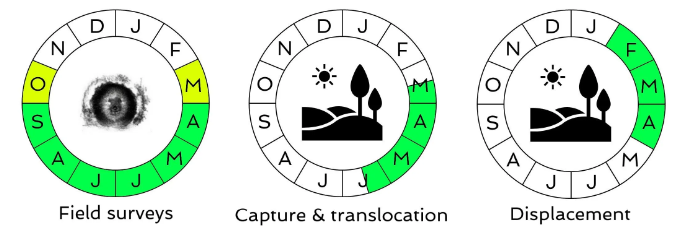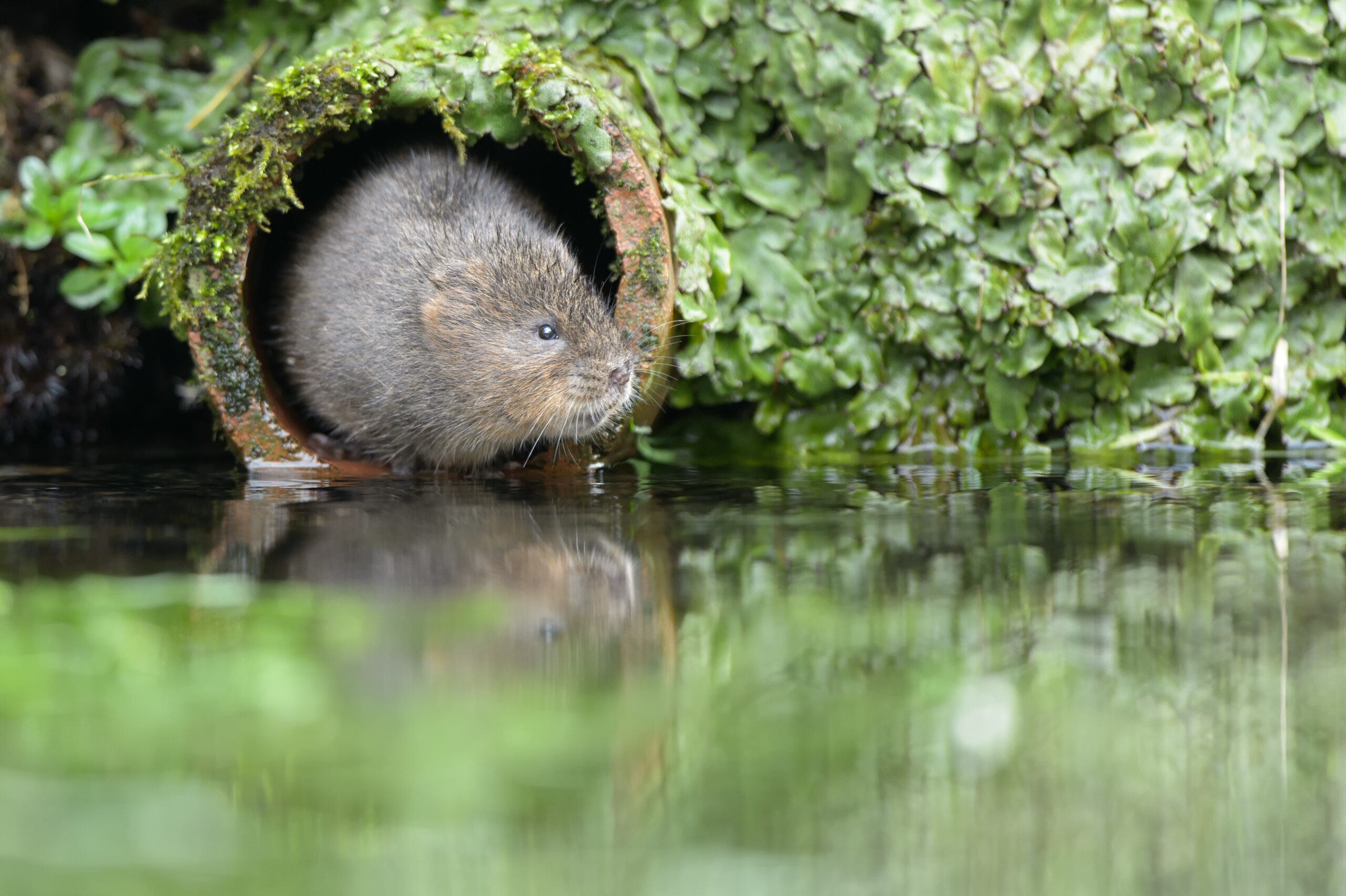Water voles are fully protected by the Wildlife and Countryside Act 1981 (as amended).

You are likely to need a water vole Arvicola amphibius survey if your site’s habitat is suitable, e.g. if there’s ‘diggable’ earth or silt-shored banks for burrowing, wide swathes of soft vegetation growing from the banks and water and slow-flowing and relatively deep water courses.
A data search for historical records of water vole presence may determine the likelihood that they could be on or near your site. However, all ecological data consultation only provides a piece of the puzzle. The absence of a record doesn’t necessarily mean there are no water voles in the area; it could simply be that nobody has surveyed for them in that vicinity.
What does a water vole survey entail?
Undertaken between April and October, a water vole survey gathers information on the presence, size and extent of any population on and adjacent to a development site, through close examination of any waterway or pond banks.
Signs of presence include actual sightings (which are rare), faeces, latrines, feeding stations, burrows, footprints and runs or pathways, all of which are recorded on a detailed map. Activities that can harm water voles include:
- Destroying or disturbing their habitat
- Destroying or disturbing places used for shelter or protection
- Changing water quality
In most cases, however, it is possible to avoid harming water voles or damaging or blocking access to their habitats. If water voles are present, an accompanying report assesses the harm development would have on water voles if no mitigation measures were planned, including the potential effects of work to the watercourse itself and work nearby.
Licencing and water voles
If disturbing water voles or damaging their habitats can’t be avoided, it will be necessary to get a licence from the relevant national agency.
Licences can’t be issued for the specific purpose of development; however, in some circumstances the agency will consider issuing a licence in relation to a development proposal if the licensed action is going to provide a conservation benefit for water voles. If you need planning permission, you must get for it before you apply for a licence. You won’t normally need a licence to survey for water voles unless you need to trap them or put a camera into their burrows

When is the right time to carry out a water vole survey?
Exact timings vary, depending on the survey type, where you live and what the weather is like at the time. We recommend checking with us first to avoid any unnecessary delays to your project. The following timings provide a general guide.
Green = optimal | Yellow = suboptimal | White = unsuitable
How can Ecology Resources help?

